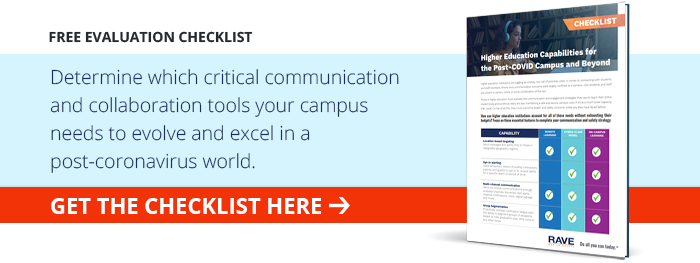Voici les établissements d’enseignement supérieur qui exigent des étudiants qu’ils se fassent vacciner avant de rentrer chez eux
At the end of March, a couple of private universities announced they would require students to be fully vaccinated before allowing them to return for in-person classes in the fall. By the end of April, a couple of hundred colleges and universities had followed suit – both private and public – and, following the CDC’s revised guidance for those who are fully vaccinated, the number has grown to nearly five hundred. However, the situation is not as straightforward as “you can return if you’re vaxed – you can’t if you’re not”. In some colleges, students who cannot be vaccinated for medical or religious reasons can apply for exemptions. In others, students who live off-campus can still return for in-person classes if they wear a mask on-campus; and, in others, colleges are not allowed to ask for proof of vaccination status – making a mockery of full vaccination policies and exposing students to risk.
Several states have passed laws prohibiting public agencies and publicly funded organizations from mandating vaccinations or requiring proof of vaccination in order to avoid violating federal legislation such as the Americans with Disabilities Act or the Civil Rights Act. As public universities fall within the category of publicly funded organizations, those located within states that have “COVID Rights legislation” have had to reverse their requirement to require student vaccinations.
The issue of whether or not it is okay to ask students about their vaccination status is still fluid. Several states still have legislation under consideration, and the uncertainty of whether a college or university will be able to enforce a full vaccination policy has resulted in many putting their policy announcements on hold. You will find the current list of colleges and universities requiring students to vax before returning here, and a list of states that have passed or are considering legislation here.
Further Confusion Surrounds Other COVID-19 Mitigation Strategies
In a previous blog, we discussed whether any two colleges or universities had the same COVID-19 mitigation strategies, and the answer is probably not. Some colleges and universities will continue to require students to wear masks. Others will not. Most are undecided. Similarly, some colleges and universities will require students to undergo COVID testing irrespective of their vaccination status or require students to self-isolate after a potential exposure. Others will not. Most are undecided.
In some cases, universities are saying they will start the fall semester with stringent COVID-19 mitigation strategies and relax them as the year progresses. Others are saying we’ll see how it goes. What this means for students and parents is that policies and procedures could change at short notice; and while colleges and universities are keen to maintain in-person classes as much as possible, the possibility exists there could be a return to remote classes at any time during the fall.
The uncertainty of what policies and procedures might be imposed, whether they will be subject to change, and whether vaccinated students will be exposed to risk is likely already having a negative impact on student mental health – months before the fall semester begins. As we reported earlier this year, 54% of Higher Ed institutions cite student mental health as a major safety issue, and the situation could deteriorate if there is a return to remote classes, isolation, and illness.
How Colleges and Universities Can Best Support Students During Uncertain Times
The best way colleges and universities can best support students during uncertain times is to make their minds up about what COVID-19 mitigation strategies they will be enforcing and communicate them clearly. Too many institutions of Higher Ed are “encouraging” students to get vaccinated, wear masks, and/or maintain social distancing, or making compliance with the strategies “optional”. This does nothing to reassure students and their parents about campus safety.
Furthermore, because no mitigation strategy is 100% effective against COVID-19, it is inevitable some students will be diagnosed with the virus during the fall semester. Colleges and universities need to acknowledge this and communicate what measures will be implemented to support students that have to isolate and prevent individual cases proliferating into outbreaks. While some campuses do already provide this information, they tend to be in the minority.
With regards to student mental health, there were reportedly issues during the last lockdown about what services were available and how they could be accessed. Communicating the availability of services and how they can be accessed confidentially should be of key importance to colleges and universities entering the fall semester due to the fresh intake of students who have experienced difficult times during their final year of High School.
Tools to Help Colleges and Universities Best Support Students
While numerous communication tools exist for colleges and universities, few have the capabilities to cover every on-campus and off-campus eventuality. The Rave Platform however is different. Although most commonly recognized as an effective emergency notification solution, the Rave Platform can be used to communicate COVID-19 mitigation strategies via multiple channels of communication – including push notifications to student safety apps.
The platform can also be used to complete self-attestation reports, conduct wellness checks, and alert students to potential exposures with infected people; while the apps can be used as a repository for COVID-19 policies and mental health resources, and configured for students to submit anonymous tips about COVID-19 policy violations, peers who are displaying symptoms of an infection, or friends who are displaying signs of a mental health illness.
You can find out more about the Rave Platform and its capabilities by getting touch with our Higher Ed safety team and requesting a demo of the platform in action. Our team will be happy to elaborate on the benefits of student safety apps and explain how they can empower students to be more proactive about their safety and security both on-campus and off-campus – not only in the context of the COVID-19 pandemic, but in all safety and security events.





